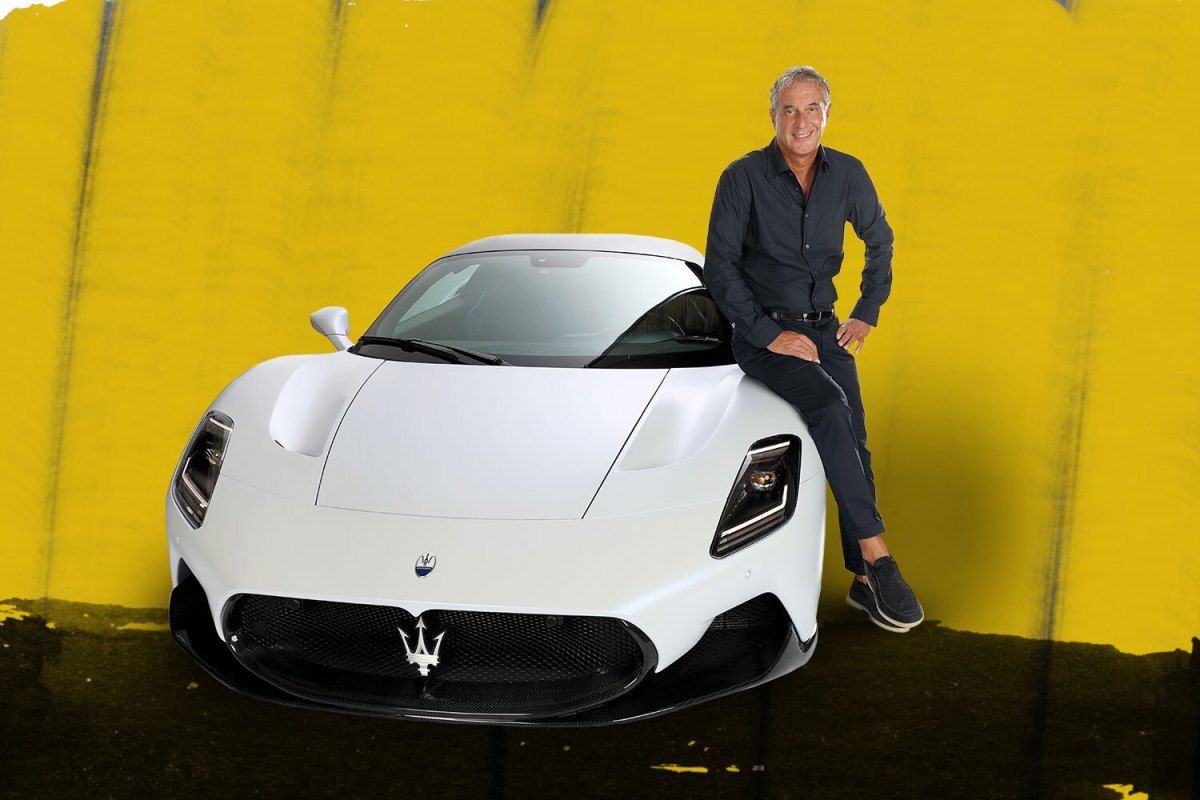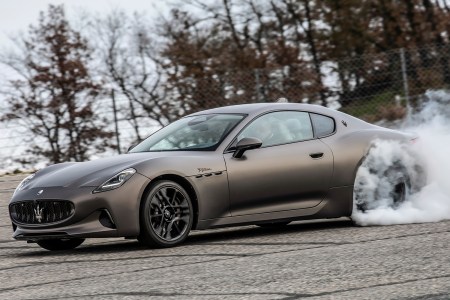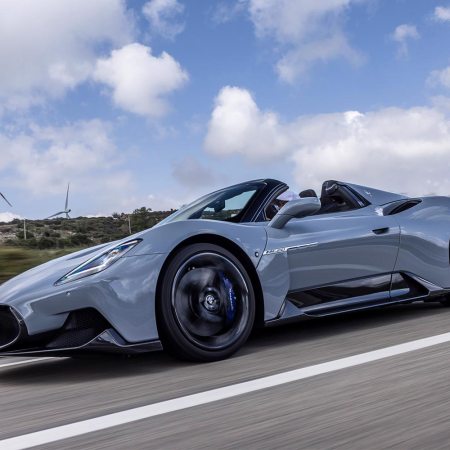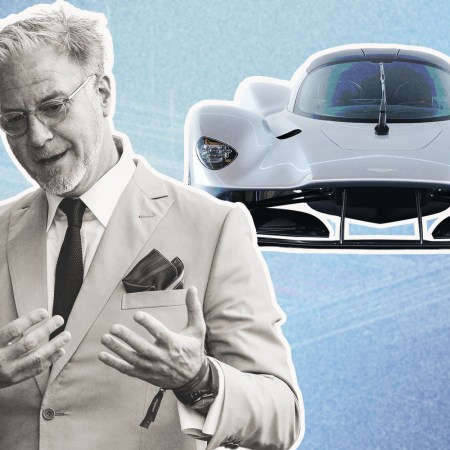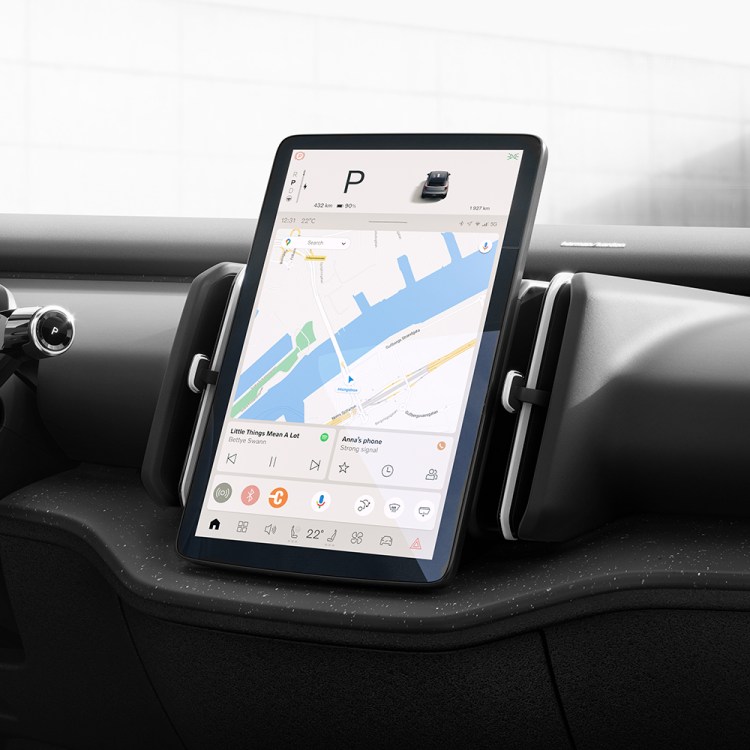Davide Grasso knows when it all started to go wrong for Maserati: when its cars stopped working.
“The aura around the brand – the name ‘Maserati’ — was amazing. Yet the experience of the car wasn’t there,” he tells InsideHook. “It belonged to a time when Maserati and other Italian cars were considered beautiful but with their “quirks,” but quirks don’t work in luxury, especially when the quality level isn’t up there with Japanese or German brands.” The bottom line? “People stopped buying a Maserati because it would break down,” he says.
For Grasso to say so is candid, because he happens to be Maserati’s CEO, having joined the company just before the pandemic hit. What he saw was a disconnect between image and actuality, and a company disastrously chasing volumes. “So for me it was all about going back to the fundamentals,” he says. “The fact is that people don’t wake up in the morning thinking about Maseratis. You need to be humble as a brand and give people a reason to think about Maserati, in a positive way, not because it’s broken down.”
If Grasso is uncharacteristically blunt about the automaker — especially, perhaps, for an Italian — maybe that’s because, career-wise, he’s not a car guy. As he notes, it’s very unusual for the insular world of the automobile industry to recruit a senior executive from outside its sphere, and for that to be a successful move. Yet his background could hardly be more different: His last job was as CEO of Converse, the canvas sneaker company. Prior to that he was, for two decades, chief marketing officer at Nike, Converse’s owner. That move, at least, had given him the experience of a dramatic culture shift.
“Going from Nike to Converse, going from East to West Coast, was a good experience, but a big change,” he says. “You [very quickly] had to understand the different speeds the companies were operating at (3,500 new products every season at Nike, for example), and the different risk factors (much, much higher at Nike too, the tough decisions, the dealing with Wall Street). Nike had many ups and downs, some of which I saw up close.”
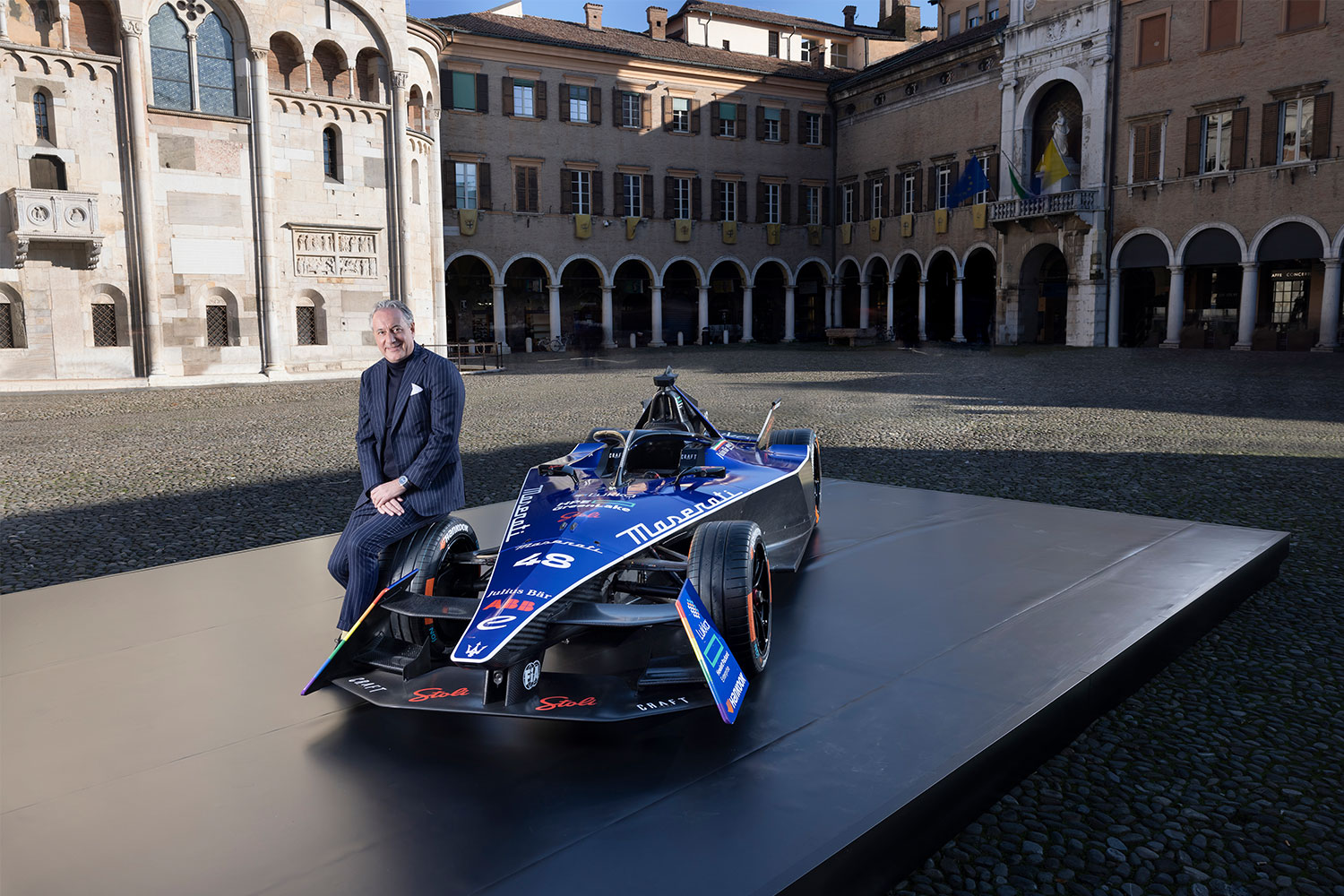
So maybe going from footwear to fast cars wouldn’t be such a leap. All the same, Grasso says he had to ask himself why he would move from a truly global brand with an iconic product and renewed cool to a failing one in an industry that, arguably, has never been more turbulent. Yes, Maserati might have heritage — it marks its 110th anniversary next year — but had it squandered the credibility that had produced the likes of the A6G, one of the seminal sports cars of the 1950s, and the 5000 GT, the world’s most expensive car when it debuted in 1959? Were the likes of the Bora, which saw Maserati produce a mid-engined supercar before Ferrari or Lamborghini, the drop-dead beautiful Khamsin GT or, more recently, even 2003’s V8 Quattroporte all well behind the company of today?
“But I just thought, you know what, I’ve been asked to transform a brand, and that’s something that I know how to do,” Grasso explains. After all, it was he who brought on LeBron James as a Nike brand ambassador, who was behind “The Chosen” and the “KobeSystem” campaigns. “I can fly, as it were. It’s a question of working out what your crew is like, how this kind of plane responds. And this plane was flying low.”
He also left Nike with CEO Phil Knight’s mantra ringing in his ears: don’t aim to be the biggest, but the best. Indeed, Grasso says he sees Maserati less as a car company and more as a luxury brand — “and ‘luxury’ is really just another way of saying very high quality,” he asserts — that happens to make cars. And that he can’t think of a single luxury brand that’s volume-driven.
It’s why, since joining Maserati, he’s made the kind of moves that maybe only a brand guy would. There’s the fun but highly viral: a partnership with toy giant Mattel to produce a limited-edition model in Barbie pink, and a collaboration with Japanese streetwear label Fragment Design. There’s the fast: the launch of Project24, a limited series of 62 track-only supercars. And there’s the flash: launching a rollout of high-gloss, art gallery-style Maserati stores in swanky locations, the first being in Milan’s historic Magenta district. As he notes, for too long even luxury cars have been sold by third party companies from warehouse-style units in out-of-town industrial parks.
“And not all third parties are able to provide a white glove service or really know the customer [as we need to these days],” he explains. “This way we can give what you might call our ‘frequent flyer’ customers a preview of cars maybe a year in advance and build on a two-way street of engagement, which also means you have to be open to constructive criticism. These days you have to convince consumers to invest in you. Profit [in the luxury sector] is a prize given by consumers who recognize that you’re adding value. When you see margins shrinking, the easy way is to go downmarket and lose them.”
Can an Electric Maserati Outwit the Classic GranTurismo?
The ultimate test for the 2024 Folgore was pitting it against the new Modena and Trofeo on Italian roadsGrasso — being a style guy too — draws a comparison with Gucci, a storied yet ailing brand that put its logo on everything and was everywhere until new owners came in, shut down most of its distribution and rebooted its roots with craft and a compelling narrative. So he too is taking Maserati back to its beginnings as a maker of decidedly luxury lifestyle objects — luxury not least, he says, because the car market, like that for fashion, furniture and hotels, is increasingly polarized between the mass-market and the high-end, with only business struggles in the middle. And he knows which end he wants to be at.
“There’s that Italian notion of luxury which I think is very different from, say, the German or French kind too,” adds Grasso. “Of course the aesthetics are important but, like Italian food, the style is more timeless, simple, never overdone. It’s that Coco Chanel line about how the opposite of luxury isn’t poverty, but vulgarity. But I’d add that today luxury also has to be about intense emotions. If you have, say, a belt [from a luxury maker], you may remember where you bought it, how it made you feel. You can’t say the same about a microwave oven, no matter how expensive it was. You hardly even remember the make. So the emotions behind luxury brands have to resonate for a long time.”
That, he says, is all the more important at a time of huge change in the car business, and disruption to how people even think about cars. The greatest challenge Grasso faces in the short term is carrying the would-be Maserati driver along the road away from the brand’s long association with characteristically rumbling, gutsy engines to electric ones.
Arguably Grasso’s biggest decision so far has been to discontinue production of its twin-turbo V8 — which it first used way back in 1959 — at the end of this year, and stop selling cars with this engine altogether from next year. The combustion engine isn’t dead for Maserati, but while last year’s impressive MC20 supercar was cleverly engineered to take either a combustion engine or electric power plant, the new GranTurismo Folgore is the company’s first all-electric model.
“We’re shifting the weight from one leg to the other. But we’re not chopping one leg off,” Grasso laughs. Maserati diehards may grumble, even if the engines won’t, but electrification is coming industry-wide, like it or not, he insists. But that doesn’t mean you get a standard battery-powered go-kart in an elegant Maserati shell.
“Taking part in Formula E, which we entered about a year ago, was quite deliberate in that it was all about accelerating the development of technical solutions in electric engines, and software too. It’s generating a lot of learning, and already paying back,” he says. “The fact is that electric vehicles don’t have to be dull just because they don’t make much noise — even though we spent 18 months developing the right, distinctive sound for our electric engine, because sound is an important part of the driving experience. Yes there are a lot of dull electric cars out there. But there’s a lot of dull stuff on TV, a lot of dull art. And if, as some claim, the majority [of electric cars] are dull, then there’s an opportunity.”
As in sneakers — necessarily ever mindful of trends, experimenting in materials and forms, always reinventing its classics while looking forward — so it is in cars. But, actually, Grasso prefers to draw an analogy between Maserati and Blockbuster, whose decline he recalls charting while he lived in Portland and Boston.
“I was in the U.S. when Blockbuster was top of the world, making so much money. And then came along Netflix. It understood that it was in the content distribution business, not in the retail business, while Blockbuster in the end was trying to sell pajamas, popcorn, mugs,” says Grasso, shaking his head.
The lesson? “I think brands can be too conservative and [get stuck] with old formulas instead of looking to their customer and asking what new technologies allow you to [give them],” he adds. “And in Maserati’s case, that’s not just in power or energy but, for example, in the transformation that digital driving will bring, whether that’s car-sharing or automated driving. What do these things mean for any luxury brand, let alone [a car brand like Maserati]? That’s the question we need to be acting on now. As Phil Knight would say, ‘It’s the hard way, but it’s the right way.’”
This article appeared in an InsideHook newsletter. Sign up for free to get more on travel, wellness, style, drinking, and culture.
